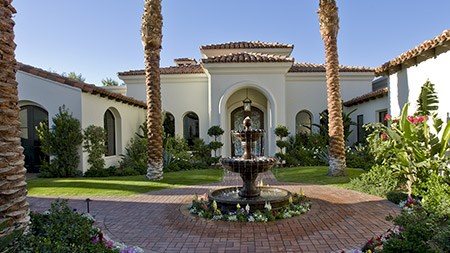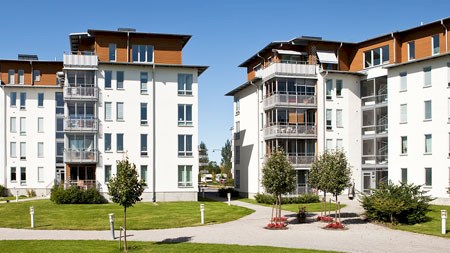Reporter: How would you define an investment property?
Simon Bray: I think the simplest way to describe investing in property is not living in the property. So there are a couple of reasons why someone would invest in property. The one is you would buy a property and you'd rent it out. And there you're looking for a rental yield, and you're effectively looking for someone else paying the rental to pay the bond or the mortgage that you've got on the place, and in time you're going to see some capital growth. The other type of investing is where you buy a place that perhaps needs some work and you've got an eye for that kind of detail, and you understand how to budget and how to spend, and you're going to renovate it and then flip it for a higher price. So both of those are really sound investment options if you know what you're doing.
So, if I was thinking of buying or looking into such a property, what would be the first things that I would need to consider when searching for a property like this?
If we talk about the one that most people think of when you're talking investment property, and that's buying to rent - so there's this idea that you want to buy a place and then put a tenant in it - you got to think completely unemotionally about it, and that's what people battle with. When it comes to property, there's always this emotional connection, "Do I like it? Is it in a place that I would live?" But when it comes to investing in property, you actually need to treat it like a business. So, draw up a business plan. Put down what is the financial commitment that you want to make. What can you afford? What do you intend to get out of it financially? The location - look at the location through the eyes of good data, good statistics. What are the prices doing in the area? What are the rental demands looking like in the area? And then you should look at the type of property. Some types of properties are fantastic to live and own for 20 years. You can bring your family up, and all of that. But not all of them are geared towards renting them out. So look at two-bedroom flats and apartments. They're very, very popular with tenants. A broad spectrum of people are in that market. And I think the last thing is the type of tenant that you want to address. Tenant demand tends to really be in the young or the older. So, you're talking about students, student accommodation, and small, lock-up-and-go places, or places for retirees. So those are some good points to look for when you're investing.
Now let's talk about the tenant part because that can present problems. How does one go about acquiring the right type of tenant for your property?
It is critically important to find the right tenant. This is your little business, this your investment, and when you're picking your tenant you're effectively picking your business partner. So you've got to be really, really careful who you let into the property up-front. It's like hiring someone, you know? Hire right, and you won't have to manage them. So get your property out there on online platforms like ours, make sure that it's advertised as widely as possible, take as many tenants through as you can until you feel that the fit is right. And then there are lots of great services that you can use, on our platform or others, where you can check on the tenant's credit history, or you can get a reference from their previous landlord. It's really good to do the background checks, to do the research that you need.
Speaking of background checks, there seem to be a lot of scams and a lot of fraudsters out there offering properties for sale or rent. How does one get around this and protect yourself from these fraudsters?
It's a really tricky part of our business, actually. You're dealing with people that might list a property online and it's a fraudulent listing. They realize and they prey upon the fact that there're lots of tenants and very few properties on the market for rent. So they'll call you up and say if you want it you're going to have to pay a deposit before 3 o'clock. And you haven't even seen the place. You don't even know if the guy owns it. So we've put a lot of effort to clean up that kind of scam. Every single listing that you'll see on Private Property's actually been verified. We call up the landlord and we find out whether they own the property or whether they know someone that owns the property. So we do our best to get rid of that fraud, but you're right. It's a tricky business and it's worth just being aware of it and being cautious.
But it's good to know that there are people out there that are protecting you from that.
Yeah, we try.
Landlord and tenant relationships can be tricky and can lead to disputes. Where can one go to get advice about that?
It's amazing how many questions people have when it comes to renting out property. Tenants - what are my rights? What do I need to sign in a lease? What do deposits look like? And then on the landlord's side, it's also really, really important. What if my tenant's not paying electricity? What if they're denying me access to the property? So we see these types of questions all the time. We get expert panelists to come and comment on articles. And then we put it into a real easy-to-use database of information and advice. So if you are in the market either as a tenant or landlord and you've got questions, we do have a space for you to come and answer those questions.
So basically privateproperty.co.za is a one-stop shop for everything?
Yeah. We like to think of ourselves as basically the premier rental platform in the country. We've got more rental listings than most. We've got fantastic resources in terms of information and insight. So if you are in the market to either buy a place and let it out, or you're a tenant looking for one of those properties, then we're the right place to come.
Do you have any final tips for would-be property investors?
Yeah, I think buying to let is a great opportunity to make money. It's a sound investment, but you need to consider if you are picking it for the right rental demand areas? And are you looking at the costs of ownership closely enough to ensure that you make the money at the end?




